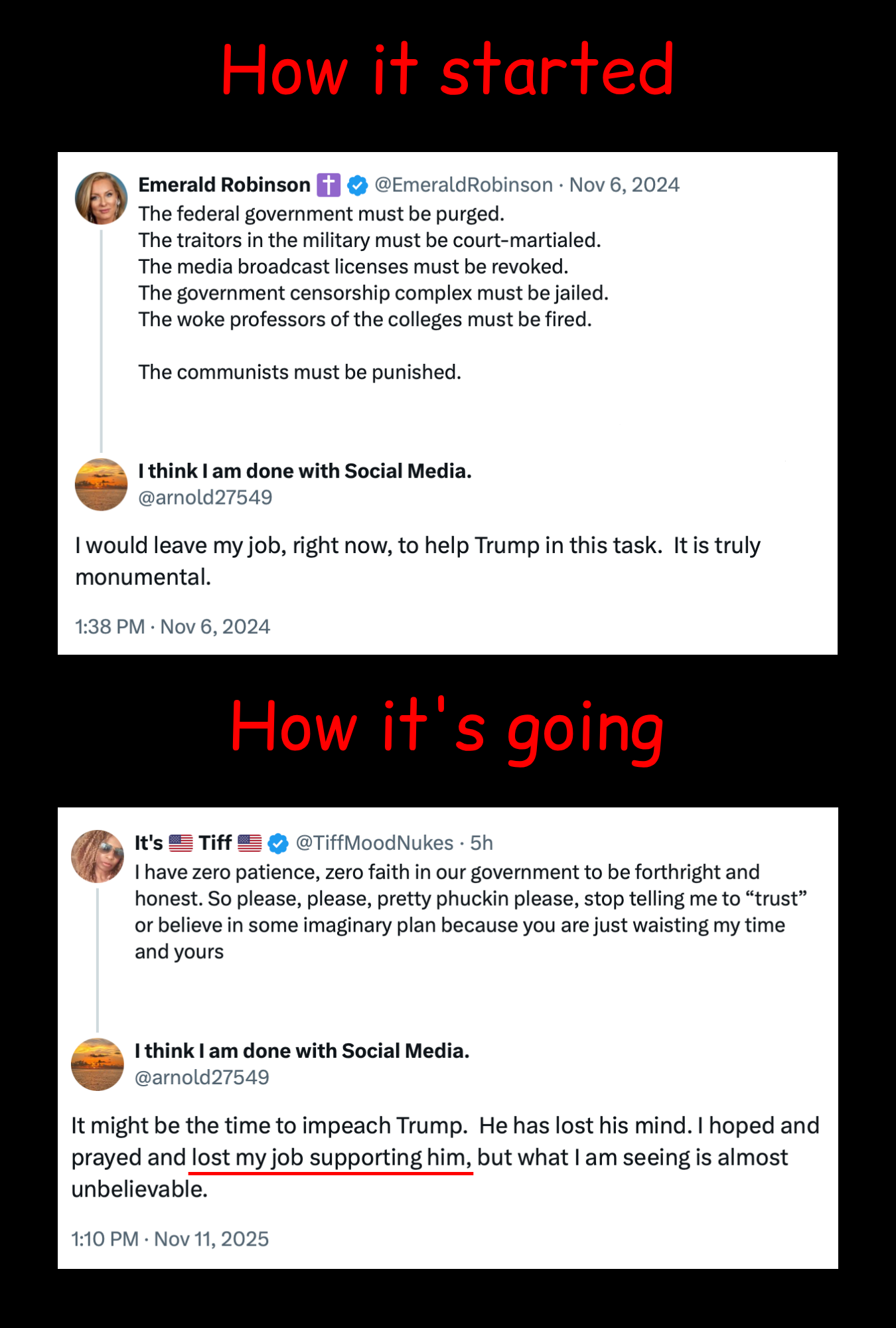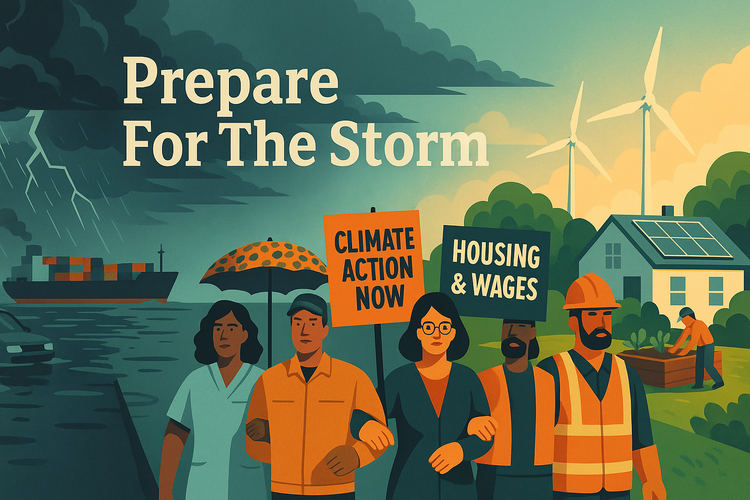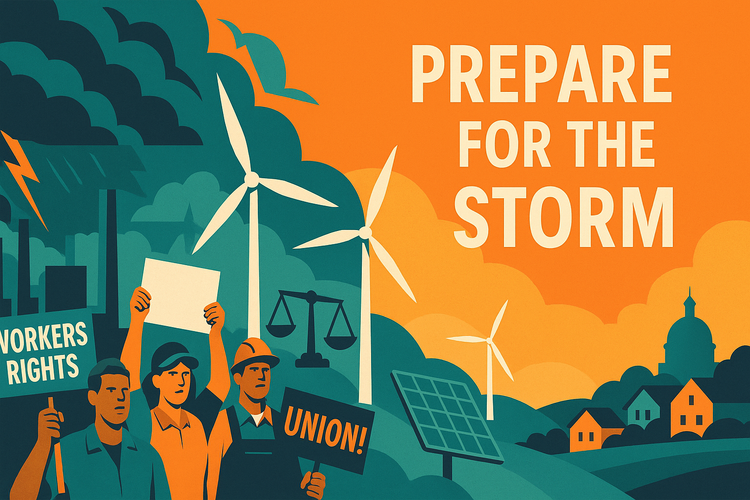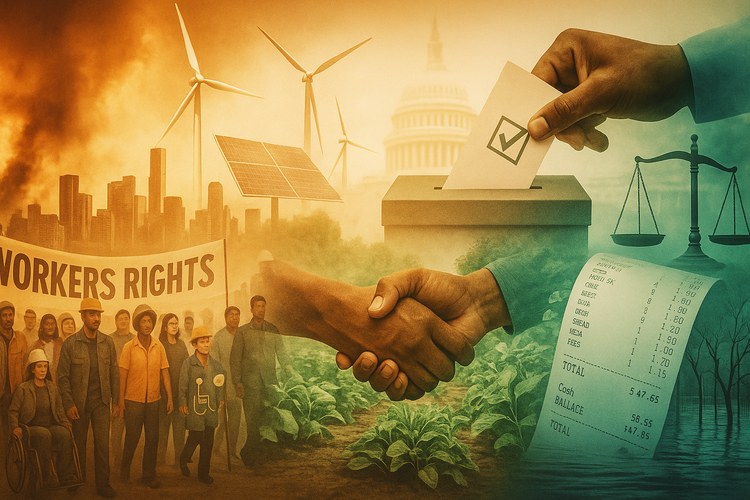Prepare For The Storm

A week like this one makes you reach for strong coffee and sturdier boots. COP30 rolled on in Belém with protest songs in the streets and lobbyists prowling the halls. The world’s biggest polluters showed up in force. So did Indigenous leaders who live with the daily costs. The gap between power and reality was impossible to miss.
Back home, workers reminded executives that nothing moves without them. From baristas to machinists, labor pushed, walked, and won. And in a rare turn for accountability, a court finally put a mining giant on the hook for a decade-old disaster. Here’s what mattered, without the fluff.
Fossil lobbyists swarm COP30
A new tally shows more than 1,600 fossil fuel lobbyists inside COP30, outnumbering nearly every national delegation except Brazil. That is one in 25 people credentialed at a summit that is supposed to steer the world away from combustion. The report from the Kick Big Polluters Out coalition says the share of lobbyists rose even as overall attendance dipped, sharpening fears of corporate capture and weak outcomes.
The UN added transparency rules this year, but most country delegations still mask affiliations, keeping the revolving door spinning. Meanwhile, heat records and storm losses keep climbing outside the security cordon.
“This is corporate capture, not climate governance.” The Guardian
What you can do: Support groups pressing for conflict-of-interest rules at the UN climate talks and tell your reps you want fossil lobbyists out of official delegations.
Indigenous voices force the world to listen in Belém
Indigenous protesters twice blocked COP30’s main entrance this week, then negotiated directly with the conference president. Their message: stop land grabs, cancel destructive rail and river projects, and fund direct climate finance for communities that actually protect forests.
Organizers called this the most inclusive COP for Indigenous participation to date, yet activists emphasized visibility is not power and the Amazon is nearing a tipping point. Their action delayed entry but not the point. If this is really the “Amazon COP,” governments need to act like it and move money, maps, and ministries.
“Our forest is not for sale.” AP News
What you can do: Back Indigenous-led funds and land rights orgs. When you donate to climate work, prioritize groups with Indigenous governance.
Starbucks workers take Red Cup Day and flip the script
More than 1,000 union baristas at 65 U.S. stores walked off on Red Cup Day, one of Starbucks’ busiest annual promotions. Workers say talks stalled after leadership changes, schedules are too thin to handle rushes, and many are kept just under benefits thresholds. The company insists compensation is industry-leading and blames the union for leaving the table.
Retail strikes are visible by design and this one aimed squarely at a media-friendly holiday. When customers meet picket lines where they usually meet lattes, the message lands.
“We’re proud of our work, but we’re tired of being treated like we’re disposable.” AP News
What you can do: If you encounter a picket, skip the store, tip the strike fund, and tell management you support a fair contract.
Boeing defense machinists end a three-month strike with raises
After rejecting four offers, 3,200 Boeing defense workers in Missouri and Illinois ratified a five-year deal that ends a three-month walkout. The agreement delivers a 24 percent wage increase over the contract and a $6,000 bonus. The union framed the result as proof that persistence pays, especially when critical national programs depend on skilled labor.
Boeing says it is ready to bring the full team back. It is a clean lesson in leverage and a reminder that headline numbers only arrive after weeks of organizing, voting, and holding the line.
“We’re proud of what our members have fought for together and are ready to get back to building the world’s most advanced military aircraft.” AP News
What you can do: If you’re in a union, pressure leaders for clear bargaining goals and strike readiness. If you’re not, learn your state’s rules and start mapping your workplace.
Shutdowns let polluters slide, and the data backs it up
New reporting synthesizes research showing that when the federal government shuts down, environmental enforcement stalls and emissions rise. During the 2018 shutdown, coal plants released 15 to 20 percent more particulate matter while inspectors were furloughed. Similar patterns appeared when pandemic policies relaxed monitoring.
The takeaway is blunt: when regulators are sent home, communities downwind absorb the cost. With shutdown brinkmanship now routine, the “temporary” damage is adding up as a permanent burden on public health.
“It means that communities may be more exposed to pollution.” Grist
What you can do: Call your members of Congress and demand anti-shutdown protections for core enforcement functions at EPA and DOJ.
LeopardsAteMyFace pick of the week: instant karma, employment edition
A viral post captured a Trump supporter who dreamed of joining mass firings at federal agencies, then lost his own job and now demands impeachment. Commenters noted the familiar pattern: blame, denial, and discovery that at-will employment cuts both ways. It is schadenfreude with a civics lesson. The humor lands because the stakes are real. Policies sold as punishment for “others” boomerang into ordinary lives faster than folks expect. Laugh, then organize.

“It’s a persecution fetish.” Reddit
What you can do: Share the post with someone flirting with authoritarian “efficiency.” Ask who does the firing in an at-will world without unions.
Feel-good justice: court holds BHP liable for Brazil dam disaster
A London judge found BHP liable for Brazil’s worst environmental disaster, the 2015 Samarco mine dam collapse that killed 19 and poisoned hundreds of miles of the Doce River. The ruling unlocks the path toward compensation for hundreds of thousands of people and dozens of communities.
It is accountability a decade late, but not too late for justice. Survivors called it historic. Damages are still to be determined, and BHP plans to appeal, yet the core finding is clear and damning.
“The risk of collapse of the dam was foreseeable.” AP News
What you can do: Support watchdogs tracking mining safety and push your city or pension fund to review exposure to firms with major environmental liabilities.
Closing Thoughts
This week was a split screen. On one side, COP30 felt like a trade show for the people who lit the fire. On the other, workers and frontline communities made themselves impossible to ignore.
Real change looks like that: less stagecraft, more people moving their feet.
Forward this to someone who thinks nothing can shift. Then tell me what you’re seeing in your town. The inbox is open for links, tips, and stories worth lifting up next week.
Sign up for Prepare For The Storm
This is a current sample of the Prepare For The Storm email newsletter. You get this sent to you once a week once you become a free subscriber and member of Weathered. Sign up below and get this newsletter emailed to your inbox weekly.





Member discussion